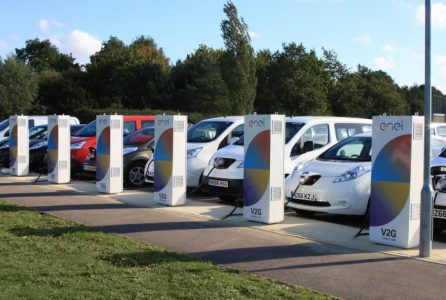Intelligent use of vehicle to grid (V2G) technology can improve the battery life of electric vehicles according to a new study from the University of Warwick, potentially disproving a key criticism levelled at the technology.

Working with the Energy and Electrical Systems group of the university’s research division WMG and Jaguar Land Rover, Dr Kotub Uddin analysed advanced lithium ion batteries used in commercially available EVs over a two year period.
This allowed him to create what is thought to be one of the most accurate battery degradation models existing in the public domain to predict battery capacity and power fade over time, under various ageing acceleration factors including temperature, state of charge, current and depth of discharge.
Using this model, Dr Uddin developed a ‘smart grid’ algorithm to calculate how much energy a vehicle requires to carry out daily journeys, and how much energy can be taken from its battery without negatively affecting it, or even improving its longevity.
This algorithm was then applied to WMG’s International Digital Laboratory to see if energy from EVs parked on the University of Warwick campus could power the multi-use building.
The study concluded that the number of EVs parked on the campus (around 2.1% of cars, in line with the UK market share of EVs) could spare the energy to power this building. In doing so, capacity fade in participant EV batteries would be reduced by up to 9.1%, and power fade by up to 12.1% over a year.
Dr Uddin said:
“These findings reinforce the attractiveness of V2G technologies to automotive original equipment manufacturers; not only is V2G an effective solution for grid support – and subsequently a tidy revenue stream – but we have shown that there is a real possibility of extending the lifetime of traction batteries in tandem.
“The results are also appealing to policy makers interested in grid decarbonisation.”
Until now a general consensus had been in place that the increased cycles imposed on a battery by V2G would lead to more rapid degradation. However, the new study suggests that this process is more complex than thought and that in fact, it can be exploited to improve a battery’s lifetime.
Read more: Clean Energy News

One thought on “V2G found to improve the lifetime of electric vehicle batteries”